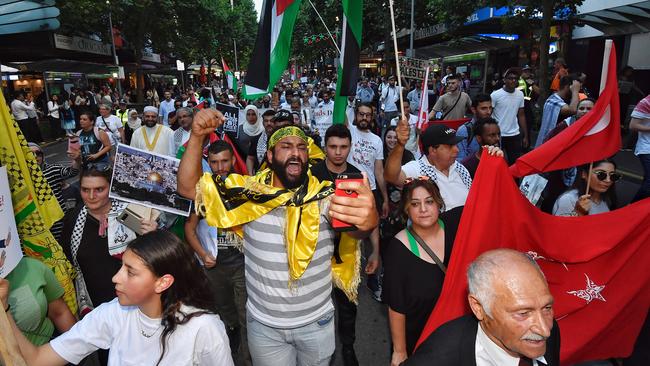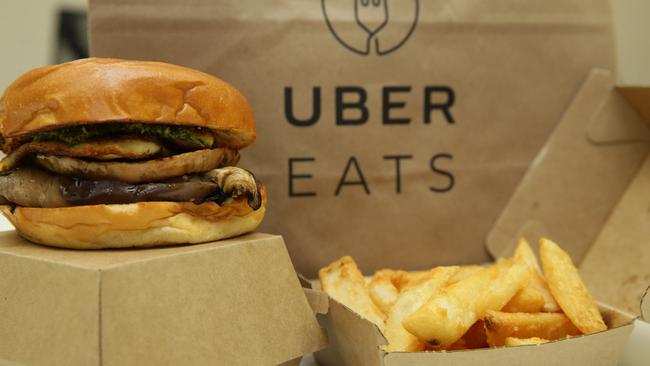Tom Elliott: Carrot and stick can solve homelessness problem
HOMELESSNESS is a blight on Melbourne but it can be solved with leadership, planning and a willingness to commit funding, writes Tom Elliott.
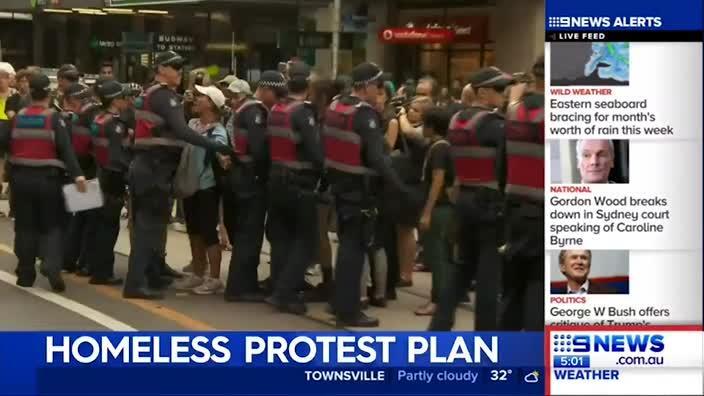
Tom Elliott
Don't miss out on the headlines from Tom Elliott. Followed categories will be added to My News.
IF WE want to continue pretending that Melbourne is the world’s most liveable city, we must solve the problem of homelessness.
No one likes seeing people sleeping rough in the city. Yet many passers-by feel awkward or angry when harassed for money.
We need a carrot-and-stick approach to clean up our streets.
First the carrot. By definition, homeless people sleep rough because they can neither find nor afford a roof over their heads. Some also prefer the streets because they have drug habits, which crisis accommodation providers won’t allow them to indulge. Whatever the reason for their homelessness, it can’t go on. We Melburnians hate seeing our city look like something from the Third World.
MORE: HOMELESSNESS ACTIVISTS DEFEND CITY TRASHING PLAN
RITA PANAHI: HOMELESS ZEALOTS ARE JUST BULLIES
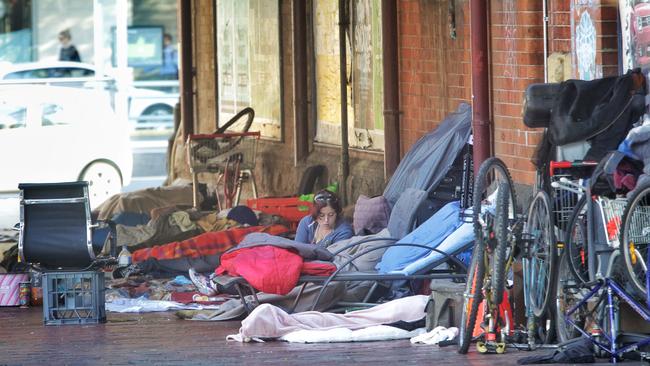
The State Government, City of Melbourne and various municipal councils need to combine resources and build a big boarding house for homeless Victorians. Such a facility would contain hundreds of rooms available at minimal rent for those unable to sleep anywhere else. Residents could stay as long as they want — either just a day or perhaps months at a time.
Other services provided would include security, meals, entertainment and medical care. Those availing themselves of this generous facility would be expected to behave properly and straighten out their lives. Neither drugs nor alcohol would be allowed inside and addiction counselling would be made available.
Homeless people on our streets complain they’re unable to access welfare because they lack a fixed address. Well, a boarding house like the one proposed here would solve that. All transfer payments generously provided by Australian taxpayers would be available to those who accept the offer of a room — also provided by the state.
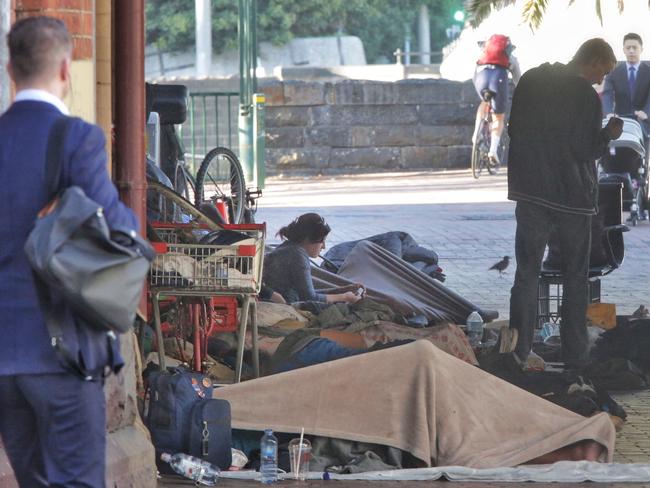
PICTURE ESSAY: A DAY AT THE FLINDERS ST HOMELESS CAMP
That’s the carrot. It’ll cost a lot of money, but no one can complain about lack of accommodation if they’re offered cheap and acceptable housing. To save money on expensive land, the boarding house will probably be located in the outer suburbs. No problems there; newly developed areas have served first-home buyers well for generations.
Now the stick. This has three parts.
First, the reason many choose to sleep rough in the CBD is because it’s a beggars’ paradise.
Those pleading for money get in the faces of office workers with disposable income. As a result, vagrants capable of attracting sympathy also make plenty of cash from pedestrians whose consciences are pricked. Giving money to beggars is almost always a bad idea. No one knows exactly how much cash tossed in hats is spent on drugs, but the proportion is undoubtedly high.
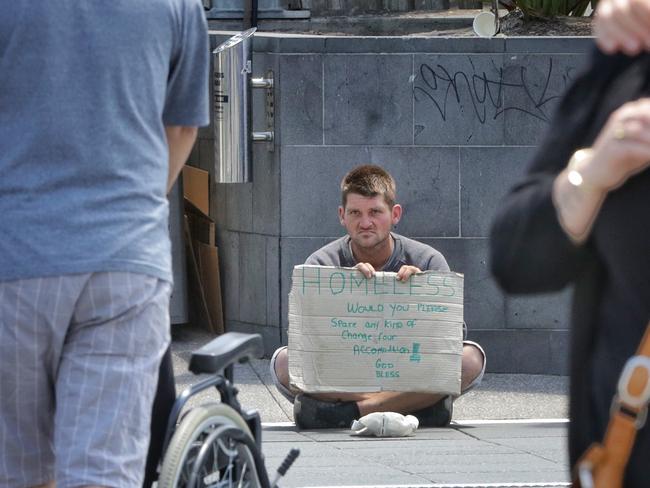

The solution? Ban begging altogether. Make it an offence to both ask for money and to give it, if the recipient is not a registered charity. Make it clear to everyone, including tourists, that begging is unacceptable in a country like Australia, which spends billions on its welfare state. Assuming the police are prepared to enforce this law (sadly, not always a given in these discretionary times), the incentive for vagrants to congregate in the CBD would largely disappear.
Second, vagrancy should also become an offence if a homeless person refuses accommodation in the proposed boarding house. You can’t on one hand complain of having no roof over your head, while on the other knock back a room provided by the government. Beggars, quite literally, cannot be choosers.
And third, we must also ensure that welfare provided to former vagrants isn’t spent on social evils like drugs and alcohol. Over the past year, a number of remote communities around Australia have been experimenting with cashless welfare cards. They permit recipients to meet their rent, buy food and pay utility bills; but spending on the pokies or in the bottle shop is banned. According to federal Human Services Minister Alan Tudge, communities with cashless welfare have experienced reduced levels of crime, alcohol abuse and domestic violence.
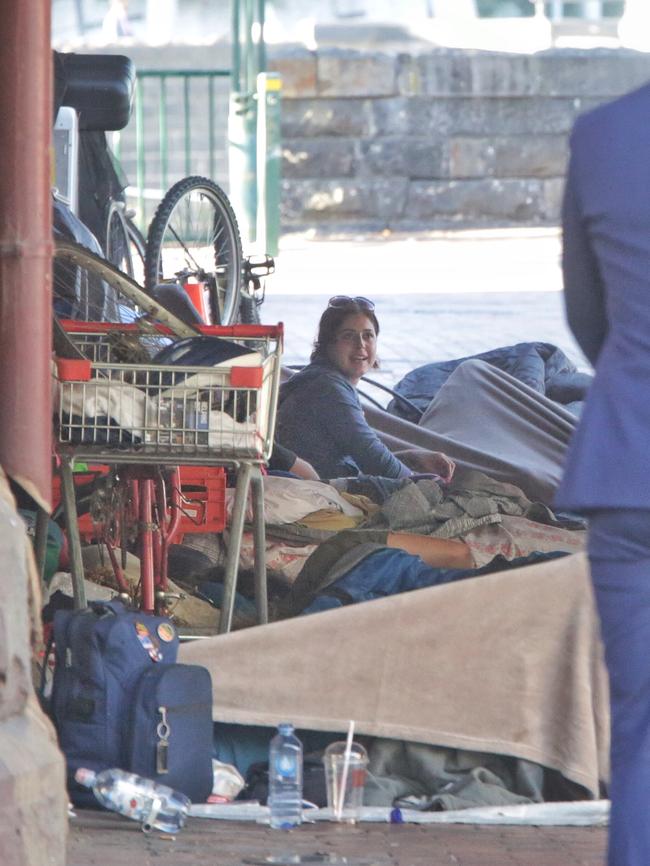
Homeless people in Melbourne should be treated the same way. Normally I’m not a nanny-statist, but if your life is a complete mess, you have nowhere to live and exist solely on handouts, you shouldn’t indulge in any form of substance abuse.
Cashless welfare will force recipients to spend what money they have on basic necessities — like food, shelter and perhaps even some new clothes to assist with potential job interviews — rather than drugs and alcohol.
With enough political will, homelessness in Melbourne can be fixed. Just moving vagrants out of the CBD is no solution, as it only shifts the problem from one location to another. Rather, the carrot of a big, well-funded and appropriately resourced boarding house would give homeless Victorians a real alternative to sleeping on footpaths and under bridges.
At the same time, the stick of both a begging ban and cashless welfare ensures that drug habits aren’t pursued under the guise of homelessness. Melbourne’s streets will be cleaned up. City workers will no longer be hassled for money. And most importantly, vagrants will be given a real chance to improve their lives.
Fixing homelessness in that fashion will cost us hundreds of millions of dollars. But what price do we put on helping people back to their feet while reclaiming our city’s famed liveability?
Tom Elliott is the drivetime host on 3AW, weekdays 3pm-6pm

